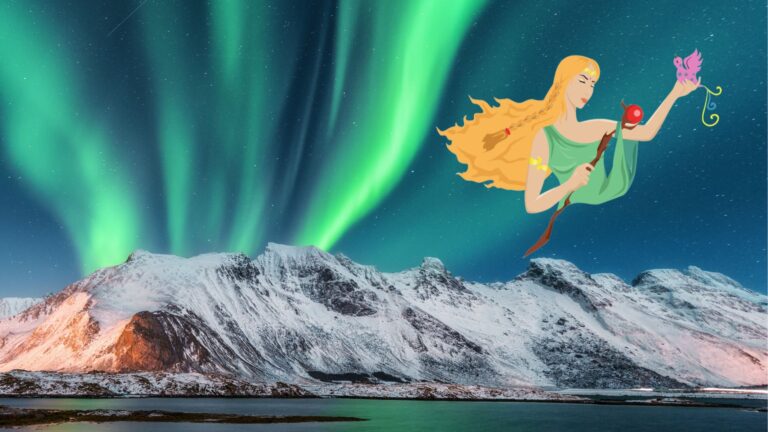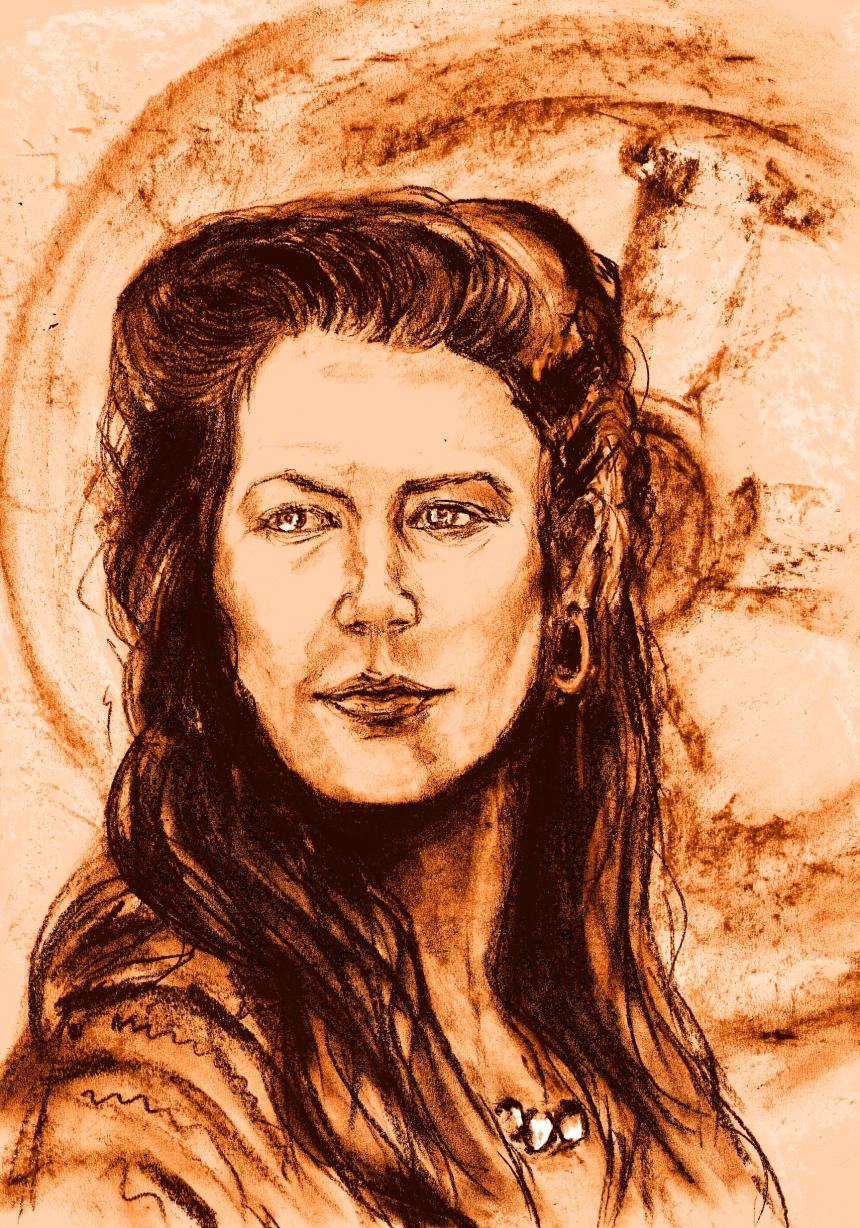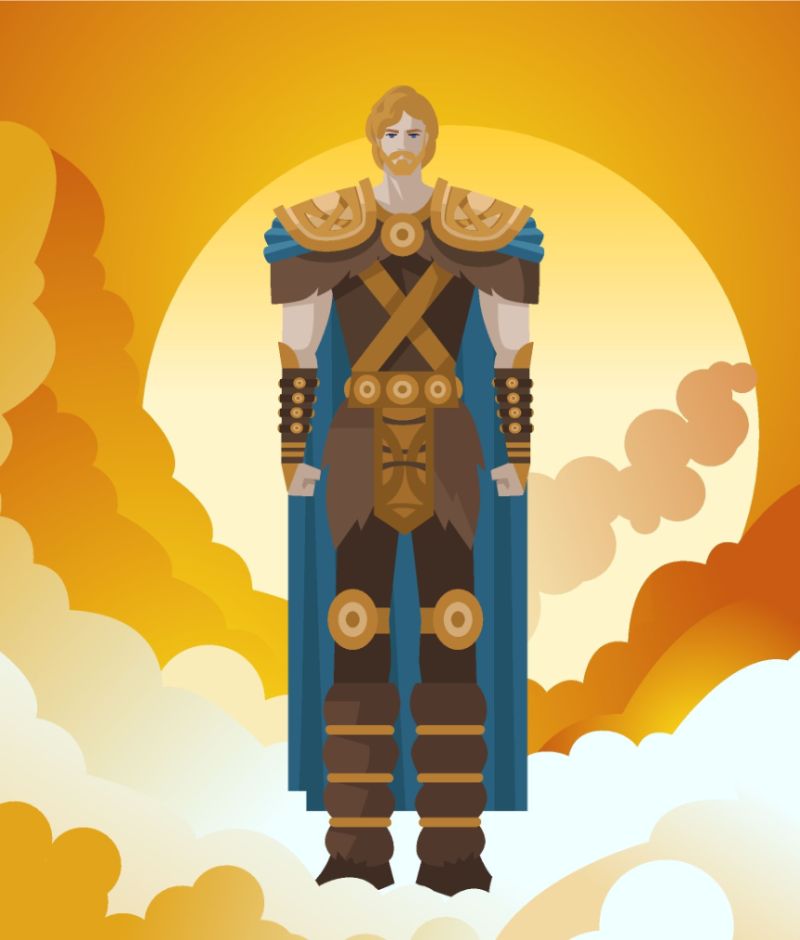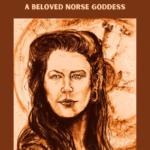Explore the mystique of Frigg, Norse mythology's revered Queen of the Æsir, a goddess of love, destiny, and the skies, weaving fates and guiding hearts in the ancient pantheon.
In the rich story of Norse mythology, Frigg stands as a central figure. As the wife of Odin and the mother of Baldur, she commands the lofty title of ‘Queen of the Æsir', marking her as a deity of supreme significance.

Revered as a Norse goddess of the sky, she is thought to craft the very clouds in the heavens. Her prophetic abilities are renowned, with the Norse crediting her with the capability to shape destinies themselves.
Moreover, this formidable goddess presides over the realms of love and marriage. Here are ten enriched facts about Frigg that underscore her significance and enigmatic allure.
1. Queen of Asgard
Frigg, as the consort of Odin, ascends to the zenith of the Norse divine order, her stature unparalleled among the goddesses of the ancient Norse.
Within the hallowed walls of Fensalir, her residence named for the “hall of the marshlands,” she commands respect and reverence, her influence weaving through the fabric of Asgardian society and its divine inhabitants.
This grand abode, nestled in the heart of Asgard, demonstrates her prominence and power.
Her union with Odin, the venerable Allfather, cements her crucial position in the divine hierarchy, making her an indispensable participant in the celestial debates and decisions shaping the cosmos.
It is in this sacred union that the depth of Frigg's wisdom and insight contributes profoundly to the governance of the divine realm, highlighting her as a linchpin in the pantheon's vast tapestry.
2. Goddess of Love, Marriage, and Motherhood
In the rich lore of Norse mythology, Frigg emerges as the embodiment of unwavering marital fidelity and the warmth of maternal care, revered for her protective embrace of marriage and her nurturing spirit of motherhood.
She is the divine guardian of marital bliss and familial harmony, her benevolence extending to all corners of human existence, guiding and comforting those entwined in the complexities of romantic and familial bonds.
Her sphere of influence not only safeguards the sanctity of marriage but also fosters the growth and prosperity of households, offering a beacon of hope and wisdom for navigating the intricacies of love and relational dynamics.

Through her sons—Balder, known for his radiance and purity; Hodor, and Hermod—Frigg's essence as a caregiver and protector is immortalised, showcasing her depth of maternal devotion.
Each son embodies distinct aspects of her divine qualities, from Balder's embodiment of light and goodness to Hodor and Hermod's contributions to the Norse divine narrative.
Through these relationships, Frigg's role transcends the personal, reflecting universal themes of love, sacrifice, and the eternal bond between mother and child, further showing her status as a central figure of nurturance and guidance in Norse lore.
3. A Sky Goddess Who Weaves the Clouds
Frigg's deep connection to the sky, visually represented by her majestic blue cape that mirrors the vast heavens, firmly anchors her within the realms of prophecy and destiny.
This celestial association is not merely aesthetic but symbolises her profound influence over the weave of fate itself.
Her legendary weaving of clouds is more than a mythic activity. It is a powerful metaphor for her ability to shape destiny, and to intertwine the will of the gods with the fabric of the mortal world.
4. Frigg's Prophetic Powers
Acknowledged across the Norse world for her unparalleled foresight, Frigg's prophetic gifts allow her a glimpse into the fabric of the future.
Yet, she chooses to wield this profound knowledge with utmost discretion, seldom revealing the shadows of what is to come, including the tragic fate awaiting her cherished son, Baldur.
This characteristic restraint highlights not just the breadth of her wisdom but also her deep understanding of fate and destiny. It underscores her respect for the natural course of events, acknowledging the weight of prophecy.
5. The Tragic Tale of Baldur
Central to Norse mythology is the heartbreaking saga of Baldur's demise, a narrative steeped in maternal love and the inexorable pull of destiny.

Frigg's boundless love for Baldur is put to the test as she endeavors to shield him from the clutches of fate, engaging in a monumental effort to secure vows of harmlessness from every creature, object, and force within the cosmos—except, fatefully, the mistletoe.
This oversight, born of a perceived insignificance, culminates in a tragedy that resonates through the ages, underscoring Frigg's unwavering commitment to her son and the profound depth of her grief.
Her story, marked by a desperate struggle against the forces of destiny, serves as a poignant reminder of the complexities of parental love, the harsh realities of fate, and the strength of the maternal spirit in the face of inevitable loss.
6. Frigg and Freya: One and the Same?
The overlapping characteristics and narratives of Frigg and Freya, two prominent goddesses in Norse mythology, have sparked debates about their potential shared origins.
Their dominions over love, fertility, and magic, alongside their ability to practice seidr, point towards a once unified deity in early Germanic worship.
This theory is supported by their intertwined roles and attributes across various myths, suggesting a common lineage.
The evolution of Norse mythology and the distinct separation of Frigg and Freya's identities in later traditions highlight the dynamic nature of divine figures within ancient spirituality.
Scholars' exploration of their names and functions further suggests a deep, shared cultural and linguistic heritage, underscoring the complex nature of Norse religious practice and its capacity for adaptation over time.
7. Frigg's Friday
The etymology of “Friday” deeply intertwines with Frigg, showcasing her as a revered figure across the Germanic world. The word Friday originates from Frīġedæġ (‘Frigg's day') in Old English.
This term is related to similar names in other Germanic languages, such as Old Frisian “Frīadei,” Middle Dutch “Vridach,” Middle Low German “Vrīdach,” and Old High German “Frîatac,” all essentially referring to the day of Frigg.
While the Old English name for Frigg is mainly seen in the context of the weekday, it also appears as a common noun meaning ‘love' or ‘affections.'
Interestingly, in Old Norse, the term “Freyjudagr” offers a rare variation of “Frjádagr,” substituting Freyja's name in place of Frigg's, showing the fluidity and interchangeability in the naming of the day.
8. A Goddess with a Clever Streak
Frigg's wisdom and strategic brilliance shine through in mythological narratives that depict her outsmarting peers and foes alike, Odin included. Her clever manipulation, which led to the Winnilers' triumph over the Vandals, is a case in point.
By advising the Winniler women to disguise themselves with faux beards, she not only secured their victory but also showcased her profound understanding of strategy, deception, and diplomacy.
This episode highlights Frigg's ability to navigate complex situations with wit and intelligence, cementing her reputation as a deity capable of influencing outcomes with her sharp mind and tactical insight.
9. Frigg's Handmaidens Reflect Her Aspects
Surrounded by a retinue of handmaidens, each embodying different aspects of her divine domain, Frigg's multifaceted nature is magnified.
From Fulla, who guards her secrets and possessions, to Gna, who serves as her messenger, these divine attendants echo Frigg's varied roles and her expansive influence across the realms.
10. An Enduring Legacy in Modern Times
Despite the Christianisation of Scandinavia dimming the ancient worship of Norse deities, Frigg's legacy endures vibrantly in modern culture, art, and spiritual practices.
Her depiction in media and artistic endeavours underscore her timeless relevance and the enduring fascination with her persona. In Oslo, there's even a local sports club that takes the name of Frigg.


